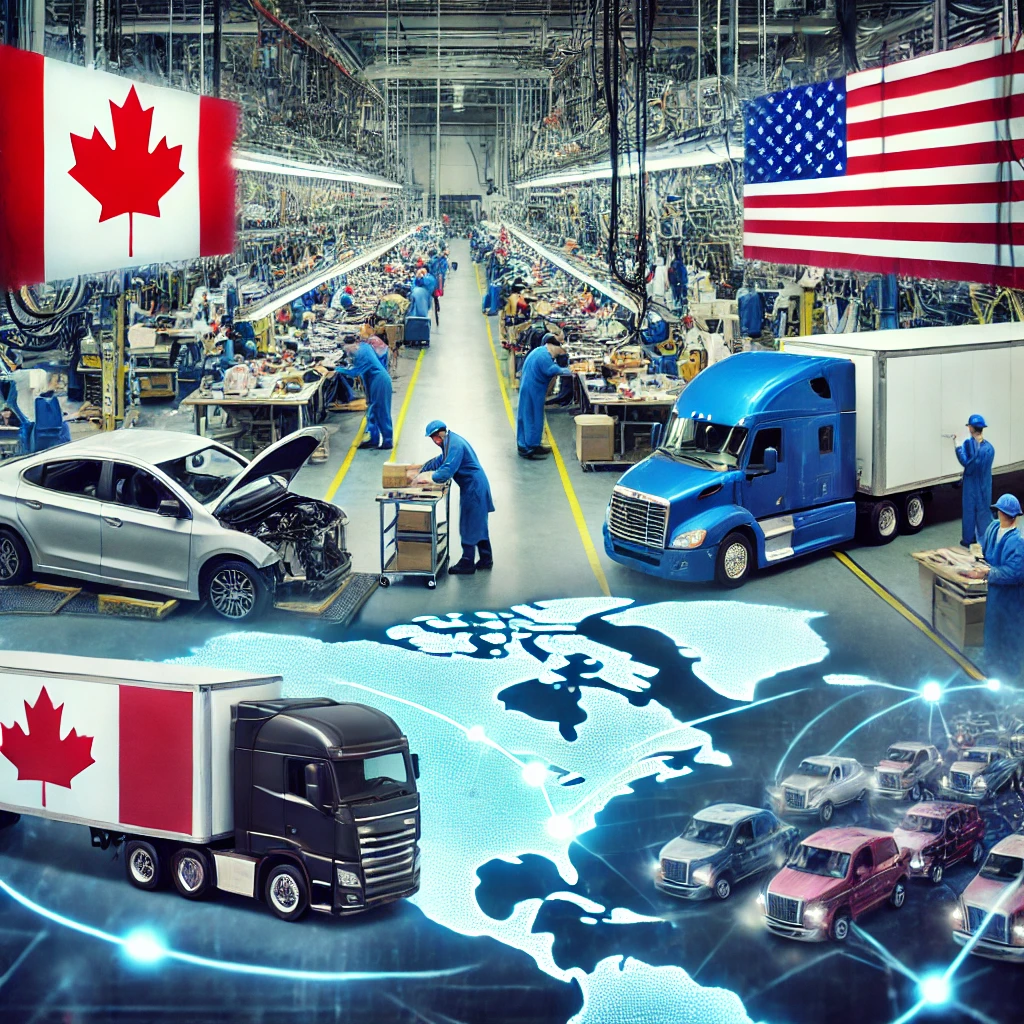As the stock market fluctuates and business leaders call for stability, U.S. President Donald Trump has announced plans to double retaliatory tariffs on Canadian steel and aluminum. This move is seen as a direct strike at the Canadian auto industry, but experts warn it will have damaging consequences for U.S. industries as well.
Waterloo Region has recently been identified as the fourth most vulnerable municipality in Canada to the economic impact of rising tariffs. However, industry insiders argue that attacking Canada’s auto manufacturing sector also harms U.S. businesses due to the deeply integrated nature of the two countries’ automotive industries.
David Adams, President and CEO of Global Automakers of Canada, explained on The Mike Farwell Show that the auto industries of Canada and the U.S. have been closely connected for decades. Many manufacturers have been collaborating since the 1960s, and others have done so since the 1980s. The goal has always been to take advantage of economies of scale to build vehicles more efficiently and cost-effectively.
Adams expressed confusion over the Trump administration’s actions, pointing out that the tariffs essentially target American parts and component manufacturers. “What effectively happens is that the U.S. is tariffing their own parts and components manufacturers because those parts come into Canadian vehicles, which are then potentially tariffed by the U.S.,” Adams said. “It really doesn’t make any sense.”
Adams remains hopeful that cooler heads will prevail and that the tariffs are intended as a temporary measure. He suggested that they might serve as a bargaining tool to encourage negotiations on a new trade agreement. “Everybody is hoping these are short-term tariffs, and that they are potentially a tool to bring both parties back to the table to renegotiate a free trade agreement.”
When the first round of 25 percent tariffs on Canadian goods entering the U.S. took effect on March 4, Adams issued a statement warning of the negative impact. “Tariffs are taxes that hurt consumers with increased costs, drive inflation, and unfairly impact workers on both sides of the border,” he stated. He further emphasized the need for the tariffs to be lifted quickly to avoid long-lasting damage to the North American automotive sector.
The ongoing tariff threats are a significant concern for both Canadian and U.S. auto industries, highlighting the interdependence of the two nations’ economies and the potential for severe consequences if tensions continue to rise.


